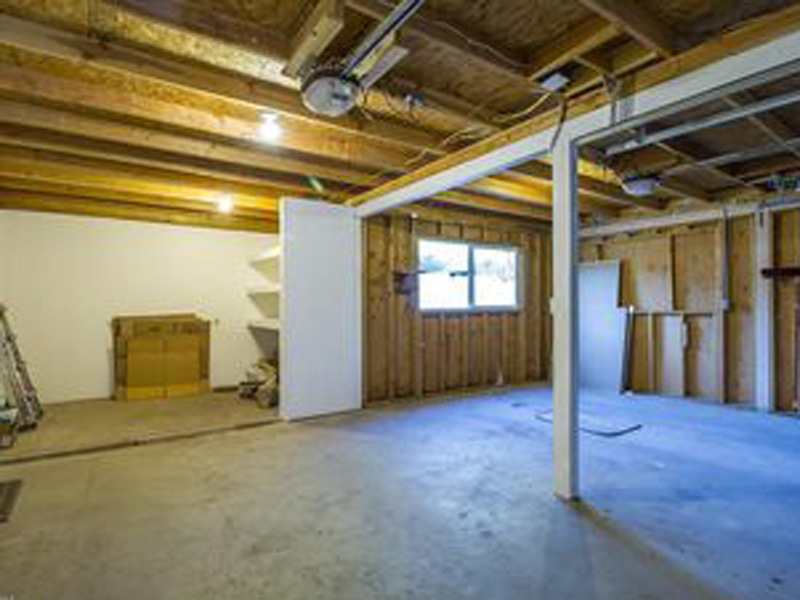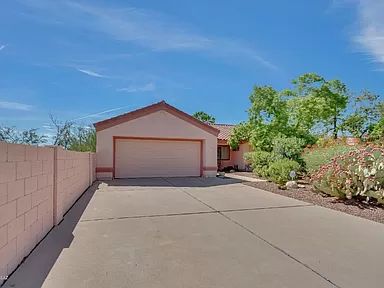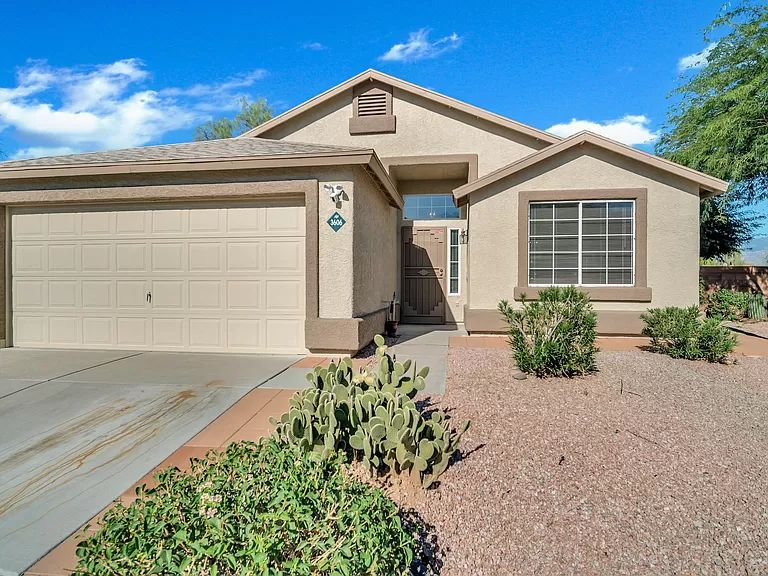Is Your Garage Door Stuck? Below's What to Do Initial
When your garage door will not open, start with these crucial safety checks before trying any type of repair work. Initially, guarantee no one is standing near the door which vehicles are clear of the opening. Try to find obvious signs of damage like broken panels, curved tracks, or hanging cables. If you see a snapped springtime or badly harmed elements, stop instantly and call a specialist—-- these repair services require customized devices and know-how to deal with safely.

Inspect These 6 Things Prior To Calling a Specialist
Prior to presuming you need expensive repair work, go through this quick diagnostic list that fixes most garage door troubles:
-
Power source: Validate the opener is connected in and the outlet is functioning
-
Remote batteries: Change dead batteries in your remote control
-
Manual lock: Examine if someone mistakenly engaged the manual lock
-
Obstructions: Seek debris blocking the door's course or sensing units
-
Emergency release: Make sure the red emergency situation cable hasn't been drawn
-
Circuit breaker: Verify the garage circuit hasn't stumbled
These easy checks solve around 70% of garage door issues without needing expert intervention.
10 Typical Reasons Your Garage Door Won't Open
Recognizing why your garage door opener isn't functioning helps you pick the right remedy. Here are the most regular causes house owners encounter:
Dead remote batteries represent the easiest fix—-- when batteries die, the remote can not send signals to the opener. Power blackouts or tripped breakers reduced electrical energy to the electric motor. Busted springtimes stop the door from raising appropriately and need instant expert focus. Sensor imbalance causes safety and security systems to obstruct door operation. Track blockages stop rollers from moving smoothly. Motor overload triggers automated shutoffs when the opener spots resistance. Restriction button problems perplex the opener regarding door setting. Cable damage interferes with the lifting system. Weather-related problems impact door movement throughout extreme temperature levels. Component wear from age slowly lowers system efficiency.
Problem # 1: Dead Remote Control Batteries
When your wall switch functions yet your remote doesn't, dead batteries are normally the wrongdoer. Most garage door remotes use either 3-volt lithium or 12-volt alkaline batteries. Eliminate the back cover of your remote and inspect the battery type. Change with fresh batteries and evaluate the remote. If it still does not function, you may require to reprogram it to your opener. Consult your opener's manual for details reprogramming instructions, as the procedure differs by maker.
Problem # 2: Power Supply Issues
Garage door power problems often originate from loosened connections or tripped circuits. Examine that the opener is securely linked into its electrical outlet—-- vibration can loosen links in time. Check the electrical outlet with an additional tool to confirm it's functioning. Examine your home's breaker box for tripped circuits, particularly if you have actually experienced storms or power fluctuations. GFCI electrical outlets may have stumbled and require resetting. If the opener has power but will not react, the issue likely lies in other places in the system.
Issue # 3: Broken or Damaged Springs
Broken garage door springtimes are amongst the most dangerous components to manage. If you hear a loud bang from your garage or notice the door really feels extremely hefty when trying to raise by hand, a spring has most likely broken. Torsion springtimes run flat over the door, while extension springs rest on either side. Never ever attempt spring repair services yourself—-- these elements save significant stress that can create major injury or fatality. Expert replacement usually costs $150-$300 however guarantees your security.
Issue # 4: Obstructed Security Sensing Units
Modern garage doors include safety sensors that stop closure when objects are detected. These sensing units can stop the door from opening up if they're dirty, misaligned, or blocked by particles. Tidy sensing unit lenses with a soft towel and ensure nothing blocks the unseen light beam in between them. Check that sensing units are properly aligned—-- most have indication lights that show connection standing. Sensor issues typically fix with straightforward cleansing and modification.
Problem # 5: Track Obstructions or Damages
Garage door tracks overview rollers as the door moves up and down. Dust, debris, old oil, or small objects can jam the system. Check tracks aesthetically and get rid of any obstructions with a brush or fabric. Try to find dents, bends, or bending that might restrain smooth procedure. Minor track changes are feasible for helpful homeowners, but considerable damage needs expert repair work to prevent further problems or security dangers.
Issue # 6: Garage Door Opener Motor Issues
When the garage door electric motor runs yet the door doesn't move, several concerns could be accountable. The electric motor may be strained and shutting down as a safety measure. Gear wear, particularly in older units, can stop appropriate procedure. Chain or belt drive problems impact power transmission. If you listen to uncommon grinding, clicking, or humming audios, quit utilizing the opener right away. Motor repairs commonly cost more than replacement, particularly for units over one decade old.
Detailed Do It Yourself Troubleshooting Guide
Follow this methodical approach to garage door troubleshooting while prioritizing safety throughout the procedure:
Action 1: Evaluate the wall surface switch first. If it works however the remote doesn't, concentrate on remote problems. If neither works, inspect power supply.
Step 2: Check out the hands-on launch cord. If it's been drawn, the opener is disengaged from the door. Push the trolley back to reconnect.
Action 3: Manually check the door by disengaging the opener and attempting to raise the door by hand. It must move efficiently and remain in area when half-open.
Step 4: Inspect visible components for damages, paying unique focus to springs, wires, and tracks.
Step 5: Examine all safety attributes consisting of sensors, restriction switches, and auto-reverse features.
Step 6: Examination various controls (remote, wall surface button, keypad) to separate the problem source.
Constantly put on shatterproof glass and job gloves when carrying out examinations, and never attempt fixings on springtimes or high-tension parts.
When to Call a Specialist vs. do it yourself Solutions

Understanding when to call a garage door specialist versus trying DIY repair work secures both your safety and your purse. Deal with these problems yourself: dead remote batteries, power supply problems, small track cleansing, sensing unit cleansing and placement, and basic lubrication.
Never attempt these repair work on your own: springtime replacement or change, wire repair work, significant track realignment, electrical circuitry issues, opener motor replacement, or any repair service including high-tension components. Specialist technicians have actually specialized devices, training, and insurance coverage to manage dangerous repair work safely.
Consider fixing expenses versus replacement expenses, specifically for doors over 15 years old. Modern garage doors provide much better security attributes, power effectiveness, and integrity than older models.
Emergency Garage Door Solutions
When you're stuck with a garage door that won't open and require immediate accessibility, adhere to these emergency situation treatments:
Guidebook Procedure: Draw the red emergency release cable to disengage the opener. This permits hands-on procedure but needs proper strategy to stay clear of injury. Raise the door gradually and evenly, utilizing leg muscular tissues instead of your back. A lot of residential doors consider 100-150 extra pounds, making them workable for the majority of adults.
Momentary Fixes: If the door opens by hand but won't keep up, prop it open with sawhorses or clamps—-- never use your body or vehicles as assistances. For doors that won't close completely, ensure the opening is safeguarded if you have to leave.
Emergency situation Solution: Lots of garage door business provide 24/7 emergency service for scenarios including safety and security issues, caught vehicles, or full system failings. While much more costly than routine service phone calls, emergency situation repairs supply instant solutions when required most.
Security Warning: What NOT to Do
Garage door security requires comprehending unsafe repairs that need to never ever be tried by home owners:
Never ever try to repair springs—-- they store sufficient energy to cause deadly injuries when they snap or are incorrectly managed. Do not compel a stuck door—-- this can damage the opener, tracks, or door panels, creating much more costly problems. Stay clear of bypassing safety and security features—-- sensors and auto-reverse mechanisms protect against significant injuries and building damage.
Do not disregard strange noises—-- grinding, scratching, or banging sounds suggest issues that aggravate in time. Never make use of the door if cable televisions are frayed or broken—-- the door might fall all of a sudden. Don't attempt electric fixings unless you're a qualified electrician—-- garage door openers utilize both 120V home existing and low-voltage control circuits.

Preventative Upkeep to Prevent Future Troubles
Regular garage door maintenance stops most typical issues and extends system life expectancy significantly:
Regular monthly Tasks: Aesthetic examination of all components, testing auto-reverse safety and security attributes, inspecting and tightening equipment, and cleaning tracks and sensing units.
Quarterly Jobs: Oiling all moving parts with suitable garage door lube, screening manual procedure, and inspecting climate securing.
Annual Jobs: Expert examination and tune-up, spring adjustment if needed, and opener upkeep consisting of belt or chain adjustment.
Seasonal Tasks: Planning for weather extremes, checking insulation, and adjusting opener settings for temperature adjustments.
Regular maintenance costs much less than emergency situation repairs and guarantees reputable operation year-round.
Garage Door Will Not Open Up Frequently Asked Questions
Why will not my garage door open with the remote but works with the wall surface button?
This normally indicates dead remote batteries, signal interference, or the need to reprogram the remote. Examine batteries initially, then consult your opener guidebook for reprogramming guidelines.
Can I by hand open my garage door if the power is out?
Yes, pull the red emergency launch cable to disengage the opener, after that lift the door manually. Be gotten ready for the door's complete weight what causes garage door cables to snap and lift with correct technique to stay clear of injury.
Exactly how do I understand if my garage door springtime is damaged?
Indications consist of a loud bang from the garage, the door feeling incredibly heavy when lifting manually, noticeable voids in the spring coils, or the door just opening up a few inches prior to quiting.
Is it safe to use my garage door if it won't open up completely?
No, partial procedure suggests mechanical troubles that can intensify unexpectedly. Quit utilizing the door and have it checked by a professional to prevent further damage or injury.
What should I do if my garage door opens yet will not close?
Check safety and security sensors for obstructions or misalignment, examine the tracks for debris, and evaluate the auto-reverse feature. If these don't fix the issue, speak with an expert.
Just how much does it set you back to take care of a garage door that won't open?
Costs differ commonly depending upon the issue: battery substitute ($5-$10), specialist medical diagnosis ($50-$100), spring substitute ($150-$300), or opener substitute ($200-$500).
Can weather impact my garage door's capability to open?
Yes, extreme cold can enlarge lubricating substances and affect steel components, while heat can create growth concerns. Many troubles deal with as temperatures stabilize, but consistent problems may require specialist attention.
Why does my garage door open up a couple of inches after that stop?
This typically suggests broken springs, restriction switch issues, or track obstructions. The opener's security functions stop operation when resistance is discovered, preventing damages to the electric motor or door.
Obtain Expert Help for Facility Issues
When DIY repairing does not solve your garage door issues, specialist technicians provide the knowledge and devices needed for secure, long-term fixings. Certified specialists identify issues accurately, use manufacturer-approved components, and supply guarantees on their job.
Expert solutions consist of: detailed system evaluations, spring and cable television substitute, opener fixing and substitute, track placement and substitute, electrical troubleshooting, and emergency solution telephone calls.
What to expect: upfront rates, qualified and insured specialists, same-day solution for lots of repair work, and follow-up maintenance recommendations.
A lot of garage door firms use totally free price quotes for major repair services and can give prompt remedies for urgent problems influencing home safety or car accessibility.
Obtaining Your Garage Door Working Again
A garage door that will not open up does not have to spoil your day or break your budget. Beginning with easy troubleshooting actions like checking power, replacing batteries, and examining for evident obstructions. Lots of problems have fast do it yourself remedies that restore typical operation within minutes.
Nonetheless, identify when professional aid is needed—-- particularly for spring-related concerns, electric issues, or facility mechanical failings. Trying dangerous repairs yourself runs the risk of major injury and usually creates a lot more pricey issues.
Normal upkeep protects against most garage door issues and guarantees reputable procedure for years to find. When troubles do happen, resolve them immediately to prevent even more costly repairs and preserve your home's safety and security and benefit. Whether you need a basic battery replacement or complete system overhaul, solutions exist to get your garage door functioning smoothly again.